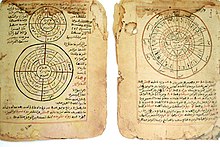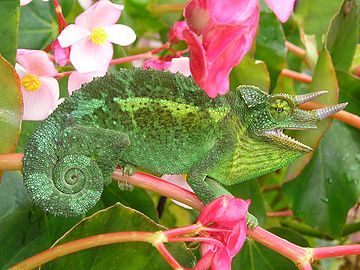Portal:Africa



Africa is the world's second-largest and second-most populous continent after Asia. At about 30.3 million km2 (11.7 million square miles) including adjacent islands, it covers 20% of Earth's land area and 6% of its total surface area. With nearly 1.4 billion people as of 2021, it accounts for about 18% of the world's human population. Africa's population is the youngest among all the continents; the median age in 2012 was 19.7, when the worldwide median age was 30.4. Despite a wide range of natural resources, Africa is the least wealthy continent per capita and second-least wealthy by total wealth, ahead of Oceania. Scholars have attributed this to different factors including geography, climate, corruption, colonialism, the Cold War, and neocolonialism. Despite this low concentration of wealth, recent economic expansion and the large and young population make Africa an important economic market in the broader global context. Africa has a large quantity of natural resources and food resources, including diamonds, sugar, salt, gold, iron, cobalt, uranium, copper, bauxite, silver, petroleum, natural gas, cocoa beans, and.
Africa straddles the equator and the prime meridian. It is the only continent to stretch from the northern temperate to the southern temperate zones. The majority of the continent and its countries are in the Northern Hemisphere, with a substantial portion and a number of countries in the Southern Hemisphere. Most of the continent lies in the tropics, except for a large part of Western Sahara, Algeria, Libya and Egypt, the northern tip of Mauritania, and the entire territories of Morocco, Ceuta, Melilla, and Tunisia, which in turn are located above the tropic of Cancer, in the northern temperate zone. In the other extreme of the continent, southern Namibia, southern Botswana, great parts of South Africa, the entire territories of Lesotho and Eswatini and the southern tips of Mozambique and Madagascar are located below the tropic of Capricorn, in the southern temperate zone.
Africa is highly biodiverse; it is the continent with the largest number of megafauna species, as it was least affected by the extinction of the Pleistocene megafauna. However, Africa also is heavily affected by a wide range of environmental issues, including desertification, deforestation, water scarcity, and pollution. These entrenched environmental concerns are expected to worsen as climate change impacts Africa. The UN Intergovernmental Panel on Climate Change has identified Africa as the continent most vulnerable to climate change.
The history of Africa is long, complex, and varied, and has often been under-appreciated by the global historical community. Africa, particularly Eastern Africa, is widely accepted to be the place of origin of humans and the Hominidae clade, also known as the great apes. The earliest hominids and their ancestors have been dated to around 7 million years ago, including Sahelanthropus, Australopithecus africanus, A. afarensis, Homo erectus, H. habilis and H. ergaster, the earliest Homo sapiens (modern human) remains, found in Ethiopia, South Africa, and Morocco, date to circa 233,000, 259,000, and 300,000 years ago, respectively, and Homo sapiens is believed to have originated in Africa around 350,000–260,000 years ago. Africa is also considered by anthropologists to be the most genetically diverse continent as a result of being the longest inhabited. (Full article...)
Selected article –

Timbuktu Manuscripts, or Tombouctou Manuscripts, is a blanket term for the large number of historically significant manuscripts that have been preserved for centuries in private households in Timbuktu, a city in northern Mali. The collections include manuscripts about art, medicine, philosophy, and science, as well as copies of the Quran. Timbuktu manuscripts are the most well known set of West African manuscripts.
The manuscripts are written in Arabic and several African languages, in the Ajami script; this includes, but is not limited to, Fula, Songhay, Tamasheq, Bambara, and Soninke. The dates of the manuscripts range between the late 13th and the early 20th centuries (i.e., from the Islamisation of the Mali Empire until the decline of traditional education in French Sudan). Their subject matter ranges from scholarly works to short letters. (Full article...)Featured pictures –
Did you know (auto-generated) -

- ... that Ruth L. Bennett provided shelter for more than 2,000 black women and girls who migrated north to Chester, Pennsylvania, as part of the Great Migration?
- ... that Albert Luthuli was the first African to win the Nobel Peace Prize?
- ... that the Shady Rest Golf and Country Club was the home of John Shippen, the first African American to compete in the U.S. Open?
- ... that South African anti-apartheid activist Ebrahim Ismail Ebrahim confused warders at the Robben Island maximum security prison by playing Bollywood music?
- ... that after the 1999 Tempe military base shooting, the Pan African Congress demanded a military funeral for the perpetrator?
- ... that Kobe and Vanessa Bryant were founding donors of the National Museum of African American History and Culture?
Categories
Selected biography –
Major Frederick Russell Burnham DSO (May 11, 1861 – September 1, 1947) was an American scout and world-traveling adventurer. He is known for his service to the British South Africa Company and to the British Army in colonial Africa, and for teaching woodcraft to Robert Baden-Powell in Rhodesia. Burnham helped inspire the founding of the international Scouting Movement.
Burnham was born on a Dakota Sioux Indian reservation in Minnesota, in the small village of Tivoli near the city of Mankato; there he learned the ways of American Indians as a boy. By the age of 14, he was supporting himself in California, while also learning scouting from some of the last of the cowboys and frontiersmen of the American Southwest. Burnham had little formal education, never finishing high school. After moving to the Arizona Territory in the early 1880s, he was drawn into the Pleasant Valley War, a feud between families of ranchers and sheepherders. He escaped and later worked as a civilian tracker for the United States Army in the Apache Wars. Feeling the need for new adventures, Burnham took his family to southern Africa in 1893, seeing Cecil Rhodes's Cape to Cairo Railway project as the next undeveloped frontier. (Full article...)Selected country –
 |
 |
|

| ||
Cape Verde, officially the Republic of Cape Verde (Portuguese: Cabo Verde, Portuguese pronunciation: [ˈkabu ˈveɾdɨ]), is a republic located on an archipelago in the Macaronesia ecoregion of the North Atlantic Ocean, off the western coast of Africa. The previously uninhabited islands were discovered and colonized by the Portuguese in the fifteenth century. The country is named after Cap Vert (meaning Green Cape) in Senegal, the westernmost point of continental Africa. It achieved independence from Portugal in 1975 after a long armed struggle in the jungles of Guinea-Bissau.
The politics of Cape Verde takes place in a framework of a parliamentary representative democratic republic, whereby the Prime Minister of Cape Verde is the head of government, and of a multi-party system. Executive power is held by the government. Legislative power is vested in both the government and the National Assembly. The Judiciary is independent of the executive and the legislature. (Read more...)
Selected city –
Johannesburg (/dʒoʊˈhænɪsbɜːrɡ/ joh-HAN-iss-burg, US also /-ˈhɑːn-/ -HAHN-, Afrikaans: [jʊəˈɦanəsbœrχ]; Zulu and Xhosa: eGoli [ɛˈɡɔːli]) (colloquially known as Jozi, Joburg, Jo'burg or "The City of Gold") is the most populous city in South Africa with 4,803,262 people, and is classified as a megacity; it is one of the 100 largest urban areas in the world. It is the provincial capital of Gauteng, the wealthiest province in South Africa. Johannesburg is the seat of the Constitutional Court, the highest court in South Africa. Most of the major South African companies and banks have their head offices in Johannesburg. The city is located within the mineral-rich Witwatersrand hills, the epicentre of the international-scale mineral, gold and (specifically) diamond trade.
Johannesburg was established in 1886, following the discovery of gold, on what had been a farm. Due to the extremely large gold deposits found along the Witwatersrand, within ten years, the population had grown to over 100,000 inhabitants. A separate city from the late 1970s until 1994, Soweto is now part of the Greater Johannesburg metropolitan area. An acronym for "South-Western Townships", Soweto was organised initially as a collection of nondescript settlements on the outskirts of the city, populated mostly by African labourers working in the gold mining industry. Soweto, although eventually incorporated into Johannesburg, had been explicitly separated as a residential area for blacks only—no whites allowed—who were not permitted to live in other "white-designated" areas of Johannesburg. Another region, Lenasia, is predominantly populated by English-speaking Indo-South Africans (people of Indian and South Asian descent). These areas were, in previous decades, designated as non-white areas, in accordance with apartheid policies of the time. (Full article...)In the news
- 12 February 2024 –
- Two boats collide on the Congo River near Kinshasa, Democratic Republic of the Congo; with the death toll remains unclear. (AP)
- 11 February 2024 – 2023 Africa Cup of Nations
- In association football, hosts Ivory Coast win their third Africa Cup of Nations by defeating Nigeria 2–1 in the final. Sébastien Haller scores the winning goal in the 81st minute. (The Guardian)
- 10 February 2024 – Somali civil war
- Four Emirati soldiers and a Bahraini military officer are killed, while ten other people are injured, when a soldier opens fire at a military base in Mogadishu, Somalia, before being killed in the ensuing shootout. Al-Shabaab claims responsibility. (AP)
- 10 February 2024 –
- A Eurocopter EC130 helicopter crashes near Nipton, California, United States, killing all the six people on board, including Nigerian banker Herbert Wigwe. (CBS News)
- 10 February 2024 – 2023–2024 Senegalese protests
- Violent protests occur in Senegal following an announcement by President Macky Sall that presidential elections have been delayed from February 25 to December 15. (Sky News)
- 9 February 2024 –
- At least 18 people are killed during a collision between a bus and a truck on a road in Kinshasa, Democratic Republic of the Congo. (AP)
Updated: 16:33, 14 February 2024
General images -
Africa topics
More did you know –
- ...that members of the Senegalese rap group Daara J were hired by campaigners in the Senegalese election of 2000 to edit their speeches?
- ...that Senegalese hip hop group Positive Black Soul's name abbreviation, PBS, is a play on that of the Parti Démocratique Sénégalais, PDS?
- ...that Mamadou Diabaté, a Malian kora player, was nominated for a Grammy Award in 2005, but lost to his cousin Toumani Diabaté?
- ...that, in November 2007, The Sowetan published an article which erroneously claimed that South African political activist Dan Mokonyane had died?
Related portals
Major Religions in Africa
North Africa
West Africa
Central Africa
East Africa
Southern Africa
Associated Wikimedia
The following Wikimedia Foundation sister projects provide more on this subject:
-
Commons
Free media repository -
Wikibooks
Free textbooks and manuals -
Wikidata
Free knowledge base -
Wikinews
Free-content news -
Wikiquote
Collection of quotations -
Wikisource
Free-content library -
Wikispecies
Directory of species -
Wikiversity
Free learning tools -
Wikivoyage
Free travel guide -
Wiktionary
Dictionary and thesaurus

























































































